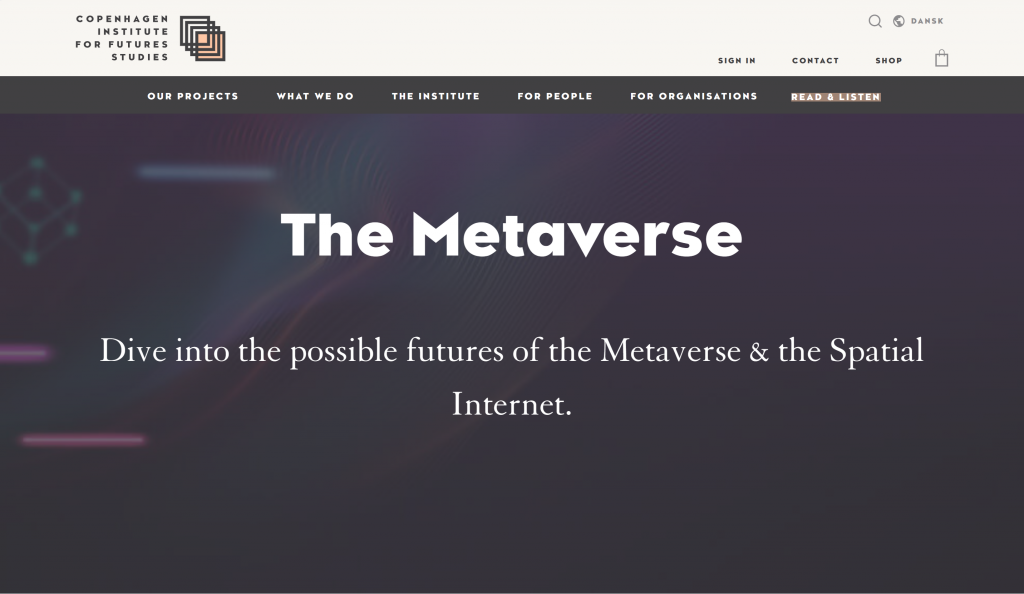When I began writing the original Field Notes from the Metaverse, I thought it would just be a few articles, maybe five or so, that went into some of the history of the metaverse and virtual worlds. Document a couple of milestones, explain a few concepts, wrap it all up with a model, done.
And yet here we are, 1.5 years later, and it is turning into something I never wanted to write: A book.
And it’s all your fault.
You provided me with amazing and encouraging feedback on the series, suggesting many more topics, milestones, and concepts that I just had to keep writing. But above all, many of you voiced the need for such a history book to exist. Thank you all so very much. 💙
With the recent hype cycle around the metaverse, there is no shortage of books that try to convince us of a specific future metaverse. They are very good at describing what this specific future metaverse will enable, and how it will change everything.
What we don’t have are good enough records where the concept of the metaverse even came from and how it evolved over time. Or rather, the records are there, just very distributed.
And this makes sense. There never was an official governing body that could authoritatively state what can and cannot be the metaverse. And also, there are many different perspectives on the metaverse that don’t necessarily overlap.
A study in disagreement
In late 2022, the Copenhagen Institute for Futures Studies (CIFS) conducted a multi-week global Delphi study with a diverse panel of 66 of the world’s leading metaverse experts. They sought to gain a deeper understanding of what the metaverse is and what implications it might bring to our lives and our society as a whole.
The resulting paper came out in March 2023 and is as confusing as it is telling.

It turned out, even the experts couldn’t agree on a common understanding on what the metaverse was, is, or will be. Some experts defined the metaverse based on the technologies they considered necessary, for example virtual reality, digital twins, or blockchains.
“In the metaverse, AR, VR, XR and/or MR is used to expand the user experience to make interaction more immersive, offering hyper-social experiences with real-time experiences where individuals can interact, work, play and learn with each other within the virtual world.”
/ CIFS Metaverse Delphi Study, participant comment
Other experts defined the metaverse through features and properties like interoperability, persistence, or immersion.
“The metaverse is an endless network of connected devices, platforms, and systems, all able to interact automatically via interoperability and security standards.”
/ CIFS Metaverse Delphi Study, participant comment
A third group focused on the ideological aspects of the metaverse, like libertarianism, communalism, or cooperative democracy.
“The vision of the open metaverse is one that is community owned, decentralized, interoperable, and guarantees privacy by design.”
/ CIFS Metaverse Delphi Study, participant comment
And although the participating experts agreed that the metaverse will have a profound impact on society, there was little to no consensus on the details, what the metaverse is, what it will be used for, and by whom.
Instead, the CIFS paper describes the metaverse as something borderline undefinable – a subjective concept that not only varies from person to person, but where the different interpretations are also competing with each other:
“The term metaverse is a contested future vision, claimed by different perspectives and motivations.”
/ CIFS Metaverse Delphi Study
But this leads to new questions: Where do these metaverse visions come from? And what motivations drive them?
The need for history
When I started working in the online games industry in the 1990s, I remember intense arguments in the hallways of the Game Developers Conference (GDC) what an “online game” actually was. Was it a game? A virtual community? A virtual world?
And then there were workgroups like “Project Horseshoe ,” arguing what “virtuality” really meant, and if one could meaningfully separate it from reality.
The discussions continued when I transitioned into building social experiences on the World Wide Web. Did we really create virtual communities for virtual brands, or was it real people and brands that connected via virtuality?
As time went on the terms to describe these concepts changed, including “Virtual Worlds,” “Mirror Worlds,” “Connected Worlds,” “Digital Dimensions,” or simply “Virtuality”.
But the term “Metaverse” always crept back into the discussions. “Metaverse” did not just describe a concept, it also carried a certain gestalt – it evoked a certain style and form, rolled into a future vision of life in virtuality.
And as we developed that new life online, it was inevitably shaped by these visions. Gradually, the concept of the metaverse evolved, as new expectations, assumptions, and visions for future life online emerged.

Looking beyond the recent hype around the metaverse and the ensuing narrative conflict, I have to wonder: How good is this history documented? Did we, the metaverse expert community, still remember those discussions around technical and social concepts? The ideologies behind them, and the resulting interpretations and visions for a metaverse? And where they originally came from?
And the point of this history cannot be to crown one understanding of the metaverse as the “strictly correct one.” The goal must be to uncover how the concept of the metaverse was interpreted at certain points in time, by different people. It is about the argument, not about declaring a winner.
My hope is that this eventual book of what happened will inspire and lead to more nuanced discussions beyond the performativity we see today.
And maybe, eventually, we can approach better answers to the initial question: What is the metaverse? And for whom is it anyway?

Leave a Reply